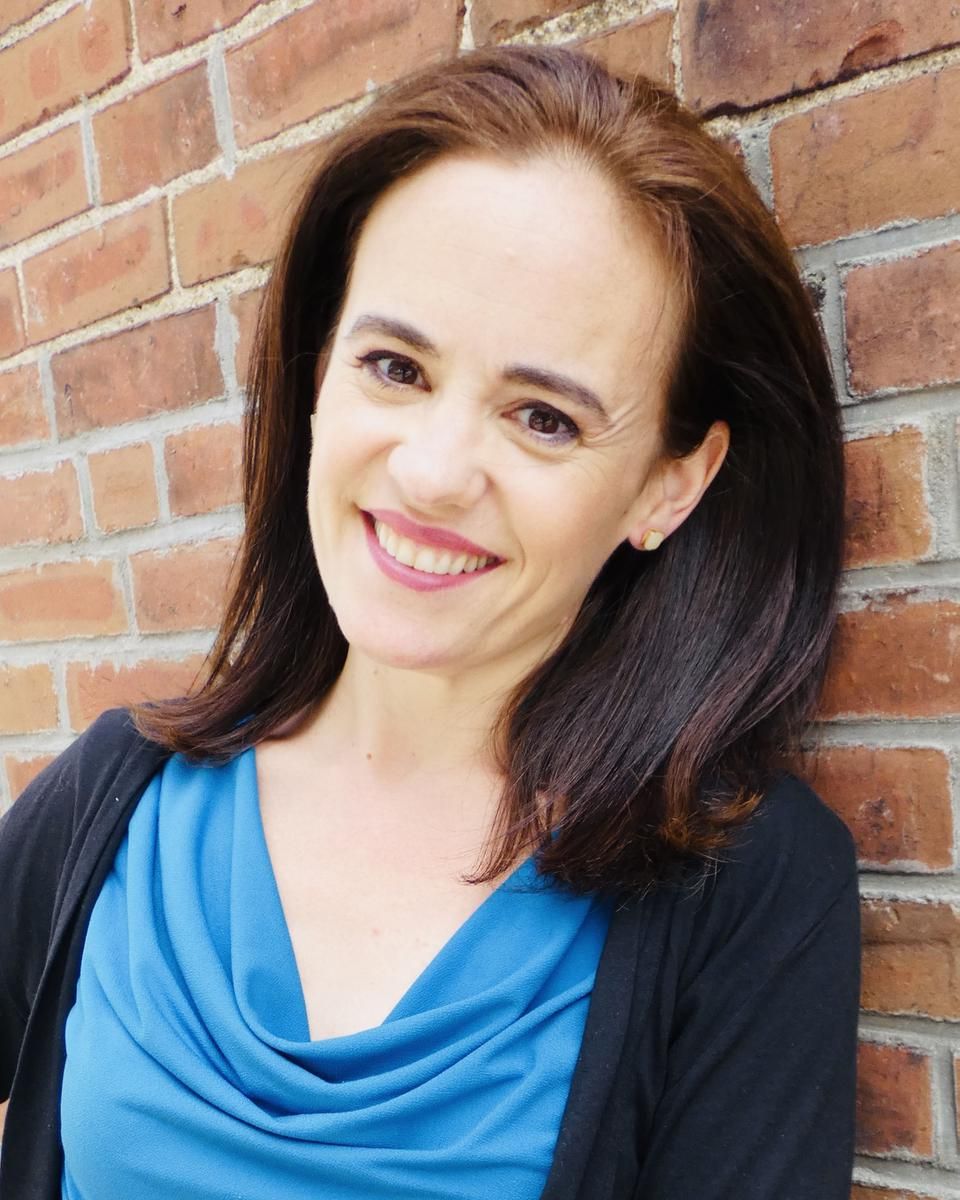
How to Support a Coworker Through Cancer: Think Beyond “What Can I Do?”
The most meaningful support requires us to shift how we think about grief, vulnerability, and what it means to truly show up for someone in crisis.
As a licensed psychologist and VP of Clinical at Alma, I’ve worked with many individuals navigating serious illness. Here’s what I’ve learned about showing up meaningfully for colleagues facing cancer.
When a colleague receives a cancer diagnosis, most of us want to help but struggle with how to respond appropriately. Our instincts about how to help—while well-intentioned—often miss the mark. The most meaningful support requires us to fundamentally shift how we think about grief, vulnerability, and what it means to truly show up for someone in crisis.
Understanding your coworker’s emotional journey
The first experience that people have upon receiving a diagnosis is typically one of shock. A cancer diagnosis often comes out of the blue, and our emotional systems may “freeze”—everything shuts down as you are trying to accommodate this new information and orient yourself to it.
This initial shock often means that you may actually not have access to much emotion other than this sense of real disorientation. Understanding this can help colleagues avoid expecting immediate emotional processing or clear communication about needs from someone who has just received devastating news.
From shock, people typically move into anxiety. Most of us don’t know what to expect, don’t know what comes next. There is so much unknown and so much to learn. The good thing about anxiety is that it tends to get people moving—anxiety tends to drive action—which may or may not be productive.
This action often manifests as intensive research and information-seeking as people look for answers, try to make connections, and identify resources. This is a normal and often helpful coping mechanism, even when it feels exhausting and overwhelming. In this way people can move from being numb or frozen to moving in the direction of seeking the information that will guide their next steps.
Other emotions typically emerge alongside anxiety: anger (“Why me?”) grief, sadness, and fear about losses both immediate and anticipated, as well as attempts to regain control over an inherently uncontrollable situation.
The most important insight I can share is that these emotions do not follow a linear pattern—they are not “stages” that someone moves through, one after the other.
Rather than moving through emotions in a linear progression, I think of it as a spiral that includes a broad range of emotions. As an individual navigates a cancer diagnosis and subsequent treatment, they will likely revisit different emotional experiences from different perspectives at different points in time.
This means that someone who seemed to have “moved past” anxiety or anger will likely encounter these emotions again, but from a different vantage point. They may experience a process of continuously cycling through these very deep and often painful emotions.
For colleagues, this understanding is crucial. It means not assuming someone is “doing better” just because they had a good day, and not being surprised when difficult emotions resurface. The spiral model helps us understand that revisiting difficult emotions isn’t regression—it’s a natural part of processing something this significant.
Attunement is the true foundation of support
I often talk with colleagues about the concept of “attunement” as the foundation for meaningful support. It is unlikely that you’ll have any idea what a colleague diagnosed with cancer may be feeling or what they are experiencing week to week, day to day, moment to moment.
Awareness of this not-knowing should inform every interaction you have with them. They won’t necessarily be able to predict what they will be feeling as time passes. Someone’s emotional state and needs can shift rapidly and unpredictably—sometimes within the same conversation.
Attunement requires that, rather than arriving with preconceived notions of what is going to be helpful for the person sitting across from us, approaching them with humility. Instead of assuming what would help based on your own preferences or experiences, the goal is to show up with openness and curiosity, and to be present in a way that focuses your attention on understanding the experiences and needs of the other person.
This might mean that, on any given day, your colleague might want to discuss work projects as they usually would, or they might want to share details about a medical appointment. As a caring and supportive colleague, what you can do is to pay attention and follow their lead rather than imposing your own agenda for the interaction.
Moving beyond “What can I do?”
One of the most common—and problematic—ways people try to help is by saying “what can I do?” or “let me know if you need anything.” This approach often backfires: asking people what they need may actually be just another burden that you are placing on their shoulders at a time when they may not know what they need today, and even if they know what they need today, they may not know what they need tomorrow.
Instead, I recommend what I call a “menu” approach. I might say, “Hey, here’s what I’m thinking—I could bring you lunch tomorrow, or I could take this specific errand or task off your plate,” or something else concrete. So I am not asking what they need, I am giving them some options of what I think I might be able to do.
This approach offers the opportunity to say, “Yes, lunch would be great,” or “Thanks, I really appreciate that, but I’m good for now, but I’ll let you know if there’s ever a time that I might need something like that.” The key is that support feels tangible and meaningful while not assuming that you know what they need that day or the next day.
Creating space & shared experience
When I work with people navigating serious illness, I focus on two core principles. First, find ways to make space for their emotions. When it comes to painful emotional experiences, our instinct can be to ignore them or push them away, to try to control them, to try to change them. And usually when we try to do those things, not only does it not work, but it often makes what we’re experiencing even more of a struggle.
Creating space means allowing difficult emotions to exist without immediately trying to fix or change them. This applies both to the person experiencing illness and to colleagues supporting them. We need to resist the urge to rush in with solutions or silver linings.
The second principle is, even in the presence of very real pain, continuing to find ways to make meaning in life. This doesn’t mean forcing positivity, but rather identifying small ways to connect with what matters. Making meaning can be like inviting a colleague dealing with cancer to take a walk with you at lunch, to get outside, breathe the fresh air and notice the color of the leaves. That simple moment, where you draw their attention towards the parts of life that they can still enjoy or appreciate, can be healing.
Practical guidelines to use if a coworker has cancer
From my perspective, supporting colleagues through serious illness is fundamentally about how we respond to people in their moments of greatest vulnerability, how we make space for that, and how we honor that and respond to them as fellow humans navigating some of the most challenging aspects of being human.
This is particularly challenging in virtual work environments where we relate to one another through fragmented Zoom calls which limit those human connections. This makes intentional support that much more critical and that much more powerful, given that we are so disconnected from one another on a day-to-day basis.
The goal is creating a community in which vulnerability is honored and responded to by showing up for one another in concrete, attuned ways. It’s about being mindful and intentional about how we relate to each other in professional spaces.
Here are some specific ways to support a coworker through cancer:
Do:
- Approach with openness and curiosity rather than assumptions.
- Offer specific, concrete help (“I can pick up lunch for the team meeting” rather than “let me know if you need anything”).
- Follow their lead on whether they want to discuss their illness or focus on work.
- Recognize that their emotional state will fluctuate unpredictably.
- Create space for their experience without trying to fix or change it.
- Show up consistently without expecting them to manage your emotional response to their situation.
Don’t:
- Assume you know what they need or how they’re feeling.
- Share stories about other people’s (or your own) cancer experiences unless they ask.
- Expect linear emotional progression.
- Take their varying moods or energy levels personally.
- Put the burden on them to direct how you can help.
- Disappear because you don’t know what to say.
The broader impact of your ongoing support
Supporting colleagues through serious illness isn’t just about individual kindness—it’s about creating workplace cultures that honor human vulnerability. This work requires us to develop our capacity for responding to our own and each other’s vulnerability by allowing for, making space, and honoring it.
In workplaces where human connection can feel fragmented and impersonal, learning to show up authentically for colleagues facing their most difficult moments becomes both a professional skill and a deeply human practice. It challenges us to bring our full selves to work in ways that allow us to balance productivity and humanity.
When we get this right, we create environments where people can navigate life’s inevitable challenges without having to choose between their health and their professional relationships. This benefits everyone—not just those facing immediate crises.
Nov 14, 2025

Looking for a therapist?
Get tips on finding a therapist who gets you.
By submitting this form, you are agreeing to Alma's privacy policy.



